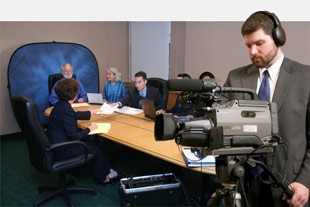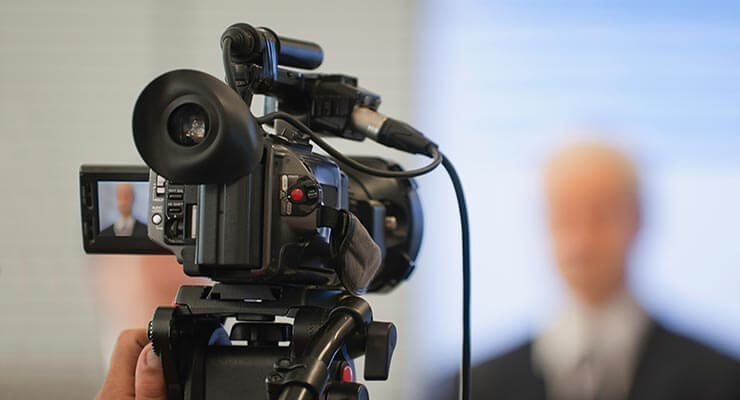Precision-Based Legal Videography for Professional Evidence Filming.
Precision-Based Legal Videography for Professional Evidence Filming.
Blog Article
The Function of Lawful Videography in Depositions and Trials
Legal videography has arised as an essential device in both depositions and tests, giving a multifaceted technique to recording witness testimonies. As lawful specialists significantly acknowledge its value, it motivates a much deeper examination of just how these visual records can affect juror assumptions and trial results.
Importance of Legal Videography
Lawful videography plays a pivotal duty in the documentation and discussion of depositions and tests. This customized field combines technical skills with legal understanding to develop a reputable record of process that can considerably influence instance end results. The visual aspect of legal videography improves the understanding of witness testimony, allowing jurors and courts to observe not only the spoken words but likewise the attitude, feelings, and body language of the witnesses.

The importance of lawful videography expands beyond the court room; it likewise plays a vital duty in preserving proof for future referral, whether for allures or further lawsuit. Thus, its integration right into the legal procedure is necessary for guaranteeing a reasonable and accurate depiction of the facts, ultimately adding to the pursuit of justice.

Process of Legal Videography
While capturing the subtleties of depositions and tests, the process of legal videography includes several crucial steps that ensure premium, precise recordings. An expert lawful videographer prepares by evaluating the situation products and understanding the certain needs of the deposition or trial. This preparation includes familiarizing themselves with the participants and the context, which assists in recording significant details.
On the day of the recording, the videographer establishes the required devices, which generally consists of high-def cameras, microphones, and proper illumination. Making certain ideal angles and sound top quality is crucial, as it straight affects the efficiency of the recording. The videographer communicates with lawyers and individuals to establish protocols, guaranteeing that everybody comprehends the recording procedure.
During the deposition or test, the videographer thoroughly videotapes the process, paying very close attention to both spoken and non-verbal hints. legal videography. This includes recording the demeanor and reactions of witnesses and lawyers. After the session ends, the videographer might edit the video for quality and conformity with lawful requirements, creating a final item that precisely reflects the proceedings for future recommendation and usage in lawful contexts
Benefits in Depositions
The consolidation of videography in depositions offers various benefits that enhance the general process of collecting evidence. One primary benefit is the ability to catch witness testaments with visual and acoustic integrity, supplying a much more accurate representation of the witness's temperament, tone, and body movement. This multidimensional technique allows attorneys and courts to evaluate integrity better than conventional written records alone.
Additionally, videographed depositions work as a powerful tool for preserving statement. Must a witness ended up being not available for trial, their taped deposition can be played in court, making sure that their evidence stays obtainable and pertinent. This facet considerably minimizes the threat of losing essential info that might influence situation results.
Additionally, using lawful videography advertises much better preparation for attorneys. Reviewing video clip footage allows legal groups to analyze and improve their approaches, recognizing staminas and weaknesses in their instances. This primary benefit can bring about even more compelling presentations in court.
Last but not least, videography improves the overall professionalism of the deposition procedure, instilling confidence in customers relating to the thoroughness of their legal depiction. By leveraging technology, legal professionals can dramatically improve the performance of depositions.
Effect On Tests
In many trials, the combination of videography can substantially influence the presentation of proof and the jury's perception. Legal videography catches witness statements and critical evidence in a dynamic layout, permitting jurors anonymous to engage with the material on several degrees. This visual part boosts the narration facet of a trial, offering context and emotional vibration that standard text-based proof may lack.
Moreover, video recordings can serve as powerful tools for impeachment during cross-examination. When inconsistencies occur between a witness's previous statements and their court room statement, video evidence gives an objective referral that can sway jurors' opinions. This immediacy and clearness can reinforce the reputation of a party's story while at the same time undermining opposing debates.
In addition, using videography can assist simplify complex information, making it more obtainable to jurors that may battle to comprehend intricate details offered solely via verbal testimony. By combining visuals with acoustic information, legal videography can improve retention and click site understanding, ultimately influencing the court's decision-making process. The impact of videography in tests prolongs past simple looks; it plays a critical role in shaping the legal landscape and outcomes.
Future Trends in Legal Videography
As we look towards the future of lawful videography, several emerging trends promise to improve its role within the courtroom. One significant trend is the assimilation of expert system (AI) in video evaluation and editing and enhancing - legal videography. AI can simplify the process of recognizing crucial minutes in tape-recorded depositions, allowing attorneys to rapidly access relevant web content, therefore boosting effectiveness in instance preparation
In addition, the rise of digital reality (VR) and enhanced truth (AR) innovations is expected to change how jurors experience proof. By immersing jurors in a simulated environment, these innovations can provide a more profound understanding of complex situations, resulting in even more educated considerations.

Moreover, the raising need for remote depositions, increased by the COVID-19 pandemic, will likely continue. Lawful videographers will certainly need to adjust to brand-new software application and platforms to make sure top notch recordings in virtual settings.
Finally, the growing emphasis on data safety and security will certainly necessitate more stringent procedures for storing and sharing video evidence. As the legal landscape develops, legal videographers have to remain abreast of these trends to maintain their significance and efficiency in the judicial process.

Verdict
In summary, lawful videography offers a vital feature in the judicial process, boosting the honesty of depositions and trials. By catching the subtleties of witness testimonies, this medium not only maintains vital evidence yet likewise help in offering information successfully to jurors. The relevance of visual paperwork in assessing trustworthiness and facilitating interrogation can not be overstated. As technology remains to Check This Out advance, legal videography is poised to further transform its function within the lawful landscape.
Report this page